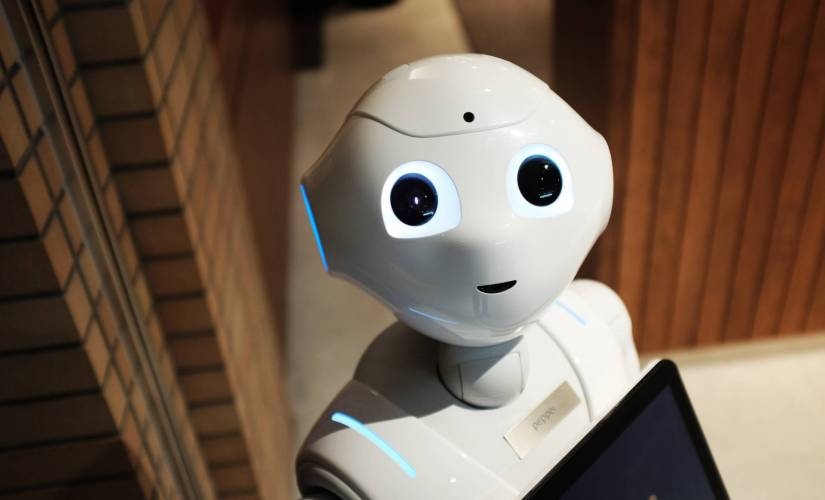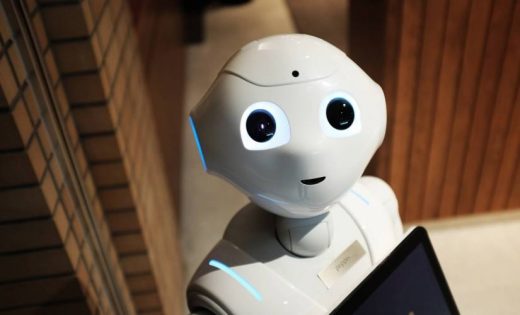With Remote Employees Now Reluctantly Returning to Work, Is Your Position at Risk of Being Replaced By AI?
With Remote Employees Now Reluctantly Returning to Work, Is Your Position at Risk of Being Replaced By AI?

The COVID-19 pandemic unquestionably shaped the way Americans performed their work duties, with nearly half of all employees (44%) shifting to remote work during the shelter-in-place mandate. Not only did this change the way these workers handled their responsibilities, but it also caused many employers to re-evaluate the necessity of requiring these staff to check in at their office in the first place.
For many, the ability to work from home became an unexpected advantage of their employment, slowly evolving from a welcome change to their new normal. Now, however, with many cities starting to re-open, employers — who had once been content to let their staff remain in their home offices — are demanding their remote employees once more resume their workload within a brick-and-mortar facility.
If that weren’t complicated enough, there’s another factor that many of these employees hadn’t considered: some of them might not even have jobs to return to when their workplace reopens. With artificial intelligence (AI) stepping into the roles that were vacated by these distant workers, more and more people are finding that instead of getting a welcome back letter, they’re instead going to find a little pink slip in their inbox.
Fearmongering, Or a Valid Threat?
The concept of artificial intelligence and robots becoming viable members of the employment workforce seems almost like something out of science fiction. These are the myths perpetuated by a P.K. Dick novel, or something that Isaac Asimov might write about. Plus, robots only work in factories, assembling cars or other machinery, or taking our orders at the drive-through. Right? Could they really be coming for us, the average white or blue-collar Joe?
Without a doubt, the answer is a resounding yes. The fact is, artificial intelligence doesn’t discriminate. It doesn’t care that you answer phones for a living, or you file reports every afternoon, or that you like your lattes with sugar-free vanilla syrup and soy milk. To them, and to the people who are preparing these robots to enter the labor pool, you’re just another faceless entity that will gradually be replaced by AI automation. This isn’t science fiction; it’s science fact.
Entry Level to Skilled Labor: Is Any Job Safe?
When people express fears concerning artificial intelligence, those anxieties are generally grounded in the intangible, such as the concept of the machines rising up and taking over humanity. It’s the dramatic overthrow that has most of us worried, not the steadily encroaching creep of robots quietly replacing us. As it turns out, their usurpation is proving to be quite a bit more subtle and significantly more insidious.
Already kiosks are popping up across the globe in fast-food restaurants and supermarkets, one by one replacing the entry-level workforce. Yet, many people scoff at the idea of skilled labor becoming redundant. A robot can’t create art, or write a novel, or perform surgery… or can it?
Indeed, no job is truly safe anymore. These days, a robot can arguably do anything that a human can, and possibly even better. Even the so-called “human element” is being injected into their work, making it virtually indistinguishable from the authentic, real-deal stuff. Common jobs already being replaced by AI include everything from healthcare roles to the creative arts, meaning that before too long, humans may actually become the obsolete technology.
Which Industries are Most Threatened By AI?
While it’s understandable to feel overwhelmed by this emerging threat of AI taking over our jobs, some industries are still at greater risk than others. Sure, a robot can write a book or compose an aria, but for now, we still have a marked preference for work created by flesh-and-bones human beings. Yes, there’s a certain novelty to watching a robot shimmy and belt out tunes to us, but we’re still going to swoon for our favorite human rock bands on stage.
That said, certain industries are at greater risk than others. For instance, telemarketing has swiftly gone the way of robocalls. Fortunately, hanging up on a bot is vastly easier than hanging up on a persistent person trying to sell us an extended warranty on our car insurance. Receptionists are also possibly going to be replaced in the near, as AI scheduling is less prone to errors and far more accurate. Say goodbye to the bored front desk employee, as their days are soon numbered.
Other jobs that may be replaced by AI include couriers and tech support. Already, many companies are turning to drones to deliver packages, and self-driving cars are already growing in numbers on our country’s highways. As for tech support, nobody likes to wait on hold, only to be told by a bored guy on the other side of the globe to ask if they’ve tried turning it off and on again. Both of these industries are sure to be expendable in the coming years.
Even managerial and HR positions aren’t safe, either. Studies have shown that even though human resources and hiring managers are typically necessary for most office workplaces, artificial intelligence is already carving out its role in this industry. Instead of offering a wage based on a potential employee’s skills, AI is guiding the compensation packages based upon complex algorithms. Even the humble employment background check — a must for all workplaces — is becoming optimized by AI.
Is It Really All Gloom and Doom, Though?
There’s one glaring caveat to this burgeoning threat that requires weighty consideration, though, and it’s one that simply cannot be overlooked. Ultimately, using AI is fraught with risks and currently cannot be left on its own, unattended. As it stands, it still requires human supervision, as it’s highly prone to errors and can veer off into the, well, surreal and even downright offensive if left unchecked.
For instance, one company decided to let AI design phone cases for them. In a relatively short amount of time, it went from generating cute puppies and kittens to creating phone cases with macabre medical imagery emblazoned upon them. In a less humorous example, a Microsoft AI chatbot was released into the Twitterverse to engage with other users. In less than 24 hours, the once-innocent bot was taught hateful ideology, sexism, and racism.
AI isn’t perfect or without flaws, and we’re still far too early in this technology to make a final call as to whether or not it is going to replace us. While a racist chatbot is certainly an issue in itself, it pales in comparison to a robot making a grave mistake during a surgery or a self-driving car navigating its passengers off a cliff. Yet we can’t forget that artificial intelligence has been an incredible gift to humanity, allowing us to develop vaccines at an unprecedented rate and restore vision in the blind.
In a way, our relationship with artificial intelligence is almost symbiotic. We’ve grown dependent upon it, but it can’t operate successfully without our guidance. By recognizing this intricate relationship, we can better harness AI’s power and mold it to our demands. And at the same time, we can also identify our own fallibility in the evident imperfections hidden inside of artificial intelligence’s potential. In turn, we can help ensure we continue to thrive together, both now and in our tentatively optimistic future.
The post With Remote Employees Now Reluctantly Returning to Work, Is Your Position at Risk of Being Replaced By AI? appeared first on ReadWrite.
(52)


